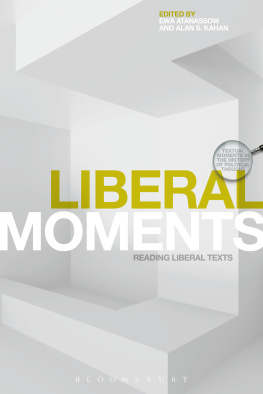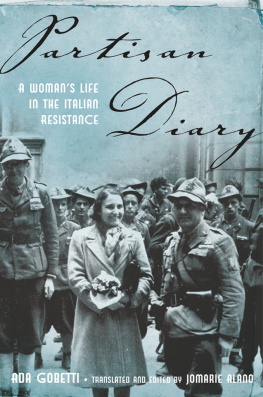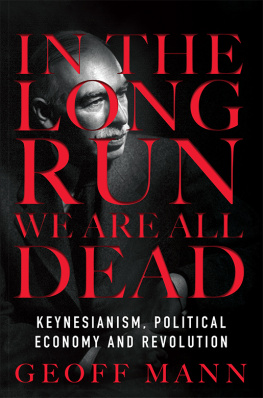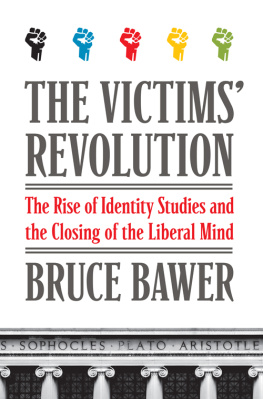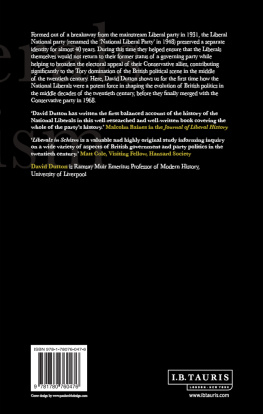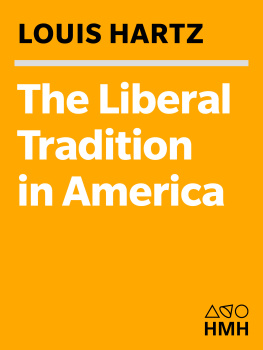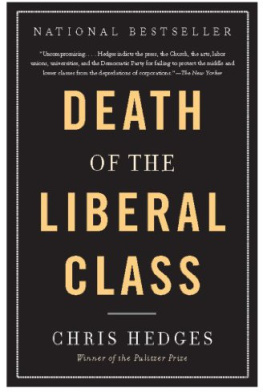Gobetti - On Liberal Revolution
Here you can read online Gobetti - On Liberal Revolution full text of the book (entire story) in english for free. Download pdf and epub, get meaning, cover and reviews about this ebook. year: 2000, publisher: YaleUP, genre: Politics. Description of the work, (preface) as well as reviews are available. Best literature library LitArk.com created for fans of good reading and offers a wide selection of genres:
Romance novel
Science fiction
Adventure
Detective
Science
History
Home and family
Prose
Art
Politics
Computer
Non-fiction
Religion
Business
Children
Humor
Choose a favorite category and find really read worthwhile books. Enjoy immersion in the world of imagination, feel the emotions of the characters or learn something new for yourself, make an fascinating discovery.

On Liberal Revolution: summary, description and annotation
We offer to read an annotation, description, summary or preface (depends on what the author of the book "On Liberal Revolution" wrote himself). If you haven't found the necessary information about the book — write in the comments, we will try to find it.
On Liberal Revolution — read online for free the complete book (whole text) full work
Below is the text of the book, divided by pages. System saving the place of the last page read, allows you to conveniently read the book "On Liberal Revolution" online for free, without having to search again every time where you left off. Put a bookmark, and you can go to the page where you finished reading at any time.
Font size:
Interval:
Bookmark:
ITALIAN LITERATURE AND THOUGHT SERIES
The Italian Literature and Thought Series makes available in English some of the representative works of Italian culture. Although it focuses on the modern and contemporary periods, it does not neglect the humanistic roots of Italian thought. The series will include new scholarly monographs, anthologies, and critically updated republications of canonical works, as well as works of general interest.
ADVISORY BOARD
Paolo Valesio, Yale University, General Editor
Peter Carravetta, City University of New York
Umberto Eco, University of Bologna
Pier Massimo Forni, Johns Hopkins University
Giuseppe Mazzotta, Yale University
Lucia Re, University of California, Los Angeles
Massimo Riva, Brown University
Rebecca West, University of Chicago
ON LIBERAL REVOLUTION
Edited and with an introduction by
Nadia Urbinati
Translated by
William McCuaig
Foreword by Norberto Bobbio
Yale University Press New Haven & London
To my friends at the Istituto Gramsci of Bologna
Published with the funding assistance of Centro Studi Piero Gobetti of Turin and the City Council of Turin.
Copyright 2000 by Yale University.
All rights reserved.
This book may not be reproduced, in whole or in part, including illustrations, in any form (beyond that copying permitted by Sections 107 and 108 of the U. S. Copyright Law and except by reviewers for the public press), without written permission from the publishers.
Designed by James J. Johnson and set in Aster Roman types by Tseng Information Systems, Durham, North Carolina. Printed in the United States of America by Vail-Ballou Press, Binghamton, New York.
Library of Congress Cataloging-in-Publication Data
Gobetti, Piero, 19011926. [Rivoluzione liberale. English]
On liberal revolution / Piero Gobetti; edited and with an introduction by Nadia
Urbinati; translated by William McCuaig.
p. cm.(Italian literature and thought series)
Includes bibliographical references and index.
ISBN 0-300-08117-0 (cloth: alk. paper)
ISBN 0-300-08118-9 (paper : alk. paper)
1. ItalyPolitics and government19141945. 2. LiberalismItalyHistory20th centurySources. 3. Anti-fascist movementsItalyHistory20th centurySources. I. Urbinati, Nadia, 1955- II. McCuaig, William, 1949- III. Title. IV. Series.
JN5450 .G6313 2000
945.091dc21 00-025022
A catalogue record for this book is available from the British Library.
The paper in this book meets the guidelines for permanence and durability of the Committee on Production Guidelines for Book Longevity of the Council on Library Resources.
10 9 8 7 6 5 4 3 2 1
I am old enough that I would have been able to know Piero Gobetti if he had not died so young. Between us there was a difference of only eight years: he was born in 1901, I in 1909. When he died in Paris on 15 February 1926, he was only twenty-five, and I was still in high school. As I have written on previous occasions, I heard his name for the first time from the teacher of Italian in our school, Umberto Cosmo, a noted antifascist who was forced to give up his teaching position the same year. Upon entering the classroom on that day in February 1926, he read the news of the death of Gobetti from La Stampa and added a few words of his own, with deep emotion.
When I was at university, enrolled in the same faculty that Gobetti had chosenjurisprudencehis life was over, but he was survived by one of the three journals that he had founded, II Baretti, which had not immediately been shut down when the exceptional laws on curbing press freedom were put into effect in 1926, because it was a journal of literature, not politics. One of our high-school teachers, Augusto Monti, had become the covert editor (covert because he too was the object of fascist hostility), and he got us to subscribe. Not long ago, while sorting through some old drawers, I discovered that I still had a few copies, which I had jealously guarded like precious relics.
The publishing house that Gobetti founded, which in the space of a few years published more than a hundred books on philosophy, literature, history, and politics, had also been shut down. Many of these editions wound up in the stalls of secondhand book dealers. I bought a few, which now form part of my library, and I recall with particular gratitude a work by one of my university professors, Francesco Ruffini, with whom Gobetti had also studied a few years earlier. This work, which later had a notable success when fascism collapsed, was entitled Diritti di libert [The Rights of Freedom], and was one of the last affirmations of free thought prior to the onset of the dictatorship.
When fascism became a regime and suppressed the basic freedoms, a blanket of silence fell on Gobetti and all the other adversaries who had opposed it. Only with the end of the war and liberation from fascism did some of his writings begin to be republished and his journals reprinted, thanks to the Centro Studi Piero Gobetti, founded in 1961 by Ada Prospero, his widow, with the collaboration of old friends. Three volumes of collected writings have already been published by Einaudi: Scritti politici, Scritti letterari, storici e filosofici, and Scritti di critica teatrale [Political Writings; Literary, Historical, and Philosophical Writings; Theater Criticism]. The fourth volume, in preparation, will comprise his rich correspondence. Guida bibliografica degli scritti su Piero Gobetti (19181975) [Bibliography of Writings on Piero Gobetti, 19181975], edited by Giancarlo Bergami and consisting of approximately three thousand entries, came out in 1981, and a second edition, updated and augmented, is being published.
Gobetti died at the age of only twenty-five, but his achievements as a writer and as a promoter of cultural initiatives are astonishing, even though they were accomplished in the space of a mere seven years, between the age of seventeen, when, barely out of high school, he founded his first journal, Energie Nuove, in November 1918 (World War I had just ended), and his death. In the Manifesto of that journal the formula liberal revolution encapsulates a historical judgment, a political ideology, and a program of action. From the historical standpoint, the journal announces a series of articles dedicated to a reconsideration of Italys political formation in the Risorgimento; as for political ideology, it promises to focus on a scrutiny of the political strengths of the parties and of their development; as regards action, it heralds the constitution of local groups committed to democratic agitation.
Meanwhile, Gobetti studied Russian with his fiance in order to be able to read for himself the texts of the revolution that had burst upon Russia in 1917. He translated a few works by an author and playwright of note, Andreiev, who had gained wide renown for his writings against the folly and horror of the First World War. It was in this period that Gobetti composed his essays on the Russian Revolution and wrote theater criticism for Gramscis journal, Ordine Nuovo, which had become a daily. He did his conscripted military service and passed all his exams in jurisprudence, taking his degree in 1922 with a dissertation on the political thought of Vittorio Alfieri, under the supervision of Professor Gioele Solari, with whom I myself took my degree nine years later, in 1931.
The first issue of La Rivoluzione Liberale came out on 12 February 1922. In April 1921 the second national election since the war, based on universal male suffrage, had taken place, and the National Bloc, headed by Giovanni Giolitti, had won. But the first fascist deputies, a little over thirty of them, had also won seats in parliament. The communists too had stood for election for the first time, following their secession from the socialists at Livorno in January 1921, and had won sixteen seats in the Chamber of Deputies. The Giolitti ministry was followed by the ministries of Bonomi and then Factathe last ministry preceding the march on Rome that ended on 28 October 1922, when the king gave Mussolini the mandate to form a new government. This was the beginning of the fascist era, which would last for more than twenty years.
Next pageFont size:
Interval:
Bookmark:
Similar books «On Liberal Revolution»
Look at similar books to On Liberal Revolution. We have selected literature similar in name and meaning in the hope of providing readers with more options to find new, interesting, not yet read works.
Discussion, reviews of the book On Liberal Revolution and just readers' own opinions. Leave your comments, write what you think about the work, its meaning or the main characters. Specify what exactly you liked and what you didn't like, and why you think so.

